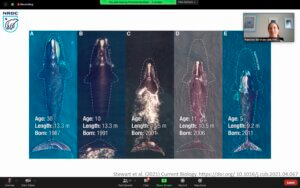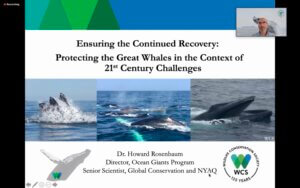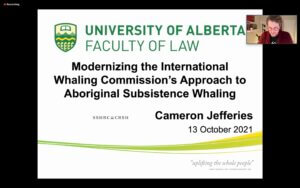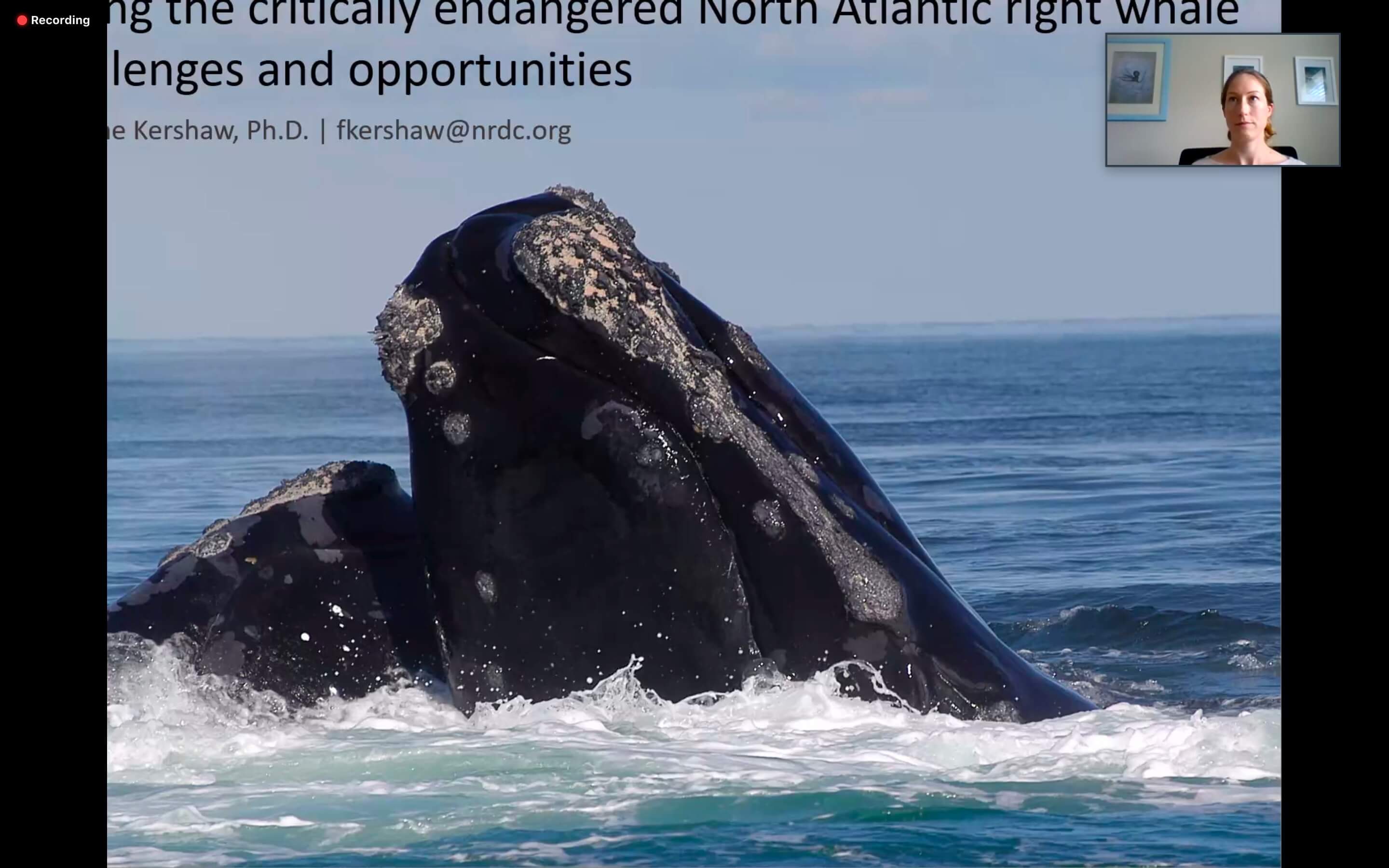By: Kyra Velock

On Wednesday, October 13, 2021, the Institute for Global Understanding (IGU) and Urban Coast Institute (UCI) commenced the second season of their Global Ocean Governance Lecture Series with a panel addressing “Current Issues in Global Governance of Whales.” This panel consisted of three experts in whale management science, law, and policy presenting on cutting-edge topics concerning global protection of whales.
Moderated by IGU Director, Professor Randall Abate, the panel included two U.S. marine scientists and one Canadian law professor. Dr. Howard Rosenbaum, Director of the Wildlife Conservation Society Ocean Giants Program Director, set the stage with his presentation on “Ensuring the Continuing Recovery: Protecting the Great Whales in the Context of 21st Century Challenges.” Dr. Rosenbaum addressed the pressing challenges great whales face in the 21st century, including bycatch, vessel strikes, sonar and underwater noise pollution, coastal and offshore wind developments in critical habitats, and the impacts of oil spills and other ocean pollutants. He also discussed how science, technology, and innovative approaches can aid in the recovery of great whales, focusing on whales in the New York Bight and Mid-Atlantic region.

Dr. Francine Kershaw, Natural Resources Defense Council (NRDC) Staff Scientist, presented next on “Saving the Critically Endangered North Atlantic Right Whale: Challenges and Opportunities.” She incorporated oceanographic findings to explain how anthropogenic climate change is causing distribution shifts of the North Atlantic right whale. Dr. Kershaw discussed how the widening Gulf Stream in Maine over the past decade (as a result of climate change) is directly correlated to whale migration patterns. As the Gulf of Maine warms, the North Atlantic right whale’s main source of food—plankton – shift to unfamiliar areas to survive in a cooler environment. This pushes whale migration closer to the coastlines, opening up more chances for them to interact with anthropogenic activities such as offshore wind farms and other projects, boating collisions, and marine pollution. Fortunately, new technological advancements, such as ropeless fishing systems, have the potential to mitigate some of these whale migration challenges to prevent fishing line entanglement.
Dr. Cameron Jefferies, Associate Professor at the University of Alberta Faculty of Law (Canada), delivered the final presentation on “Modernizing the International Whaling Commission’s Approach to Aboriginal Subsistence Whaling.” He introduced the Canadian perspective on ocean policy and law, including perspectives on the Indigenous right to whaling. Dr. Jefferies noted that Canada is an outlier when it comes to its approach to international whale management, as it holds 37 cetacean species within its waters but is not a member of the International Whaling Commission (IWC).
Since 1946, when the International Convention for the Regulation of Whaling came into force, the main challenge at the IWC has been the future of internationally sanctioned commercial whaling. In 1985, the IWC placed a moratorium on commercial whaling, which has helped aid the recovery of whale species but has escalated tensions between pro- and anti-whaling nations, and has raised concerns in other parties to the treaty.
 Dr. Jefferies then focused on aboriginal subsistence whaling, which is another contentious issue under the treaty, especially for Canada. In an effort to respect Indigenous communities that have practiced whaling for centuries as a cultural, nutritional, and social tradition, the IWC has grappled with allowing exceptions for these Indigenous rights. This process led Canada to withdraw from the IWC in 1981 because the IWC dismissed Canada’s need to protect whaling rights for indigenous communities.
Dr. Jefferies then focused on aboriginal subsistence whaling, which is another contentious issue under the treaty, especially for Canada. In an effort to respect Indigenous communities that have practiced whaling for centuries as a cultural, nutritional, and social tradition, the IWC has grappled with allowing exceptions for these Indigenous rights. This process led Canada to withdraw from the IWC in 1981 because the IWC dismissed Canada’s need to protect whaling rights for indigenous communities.

